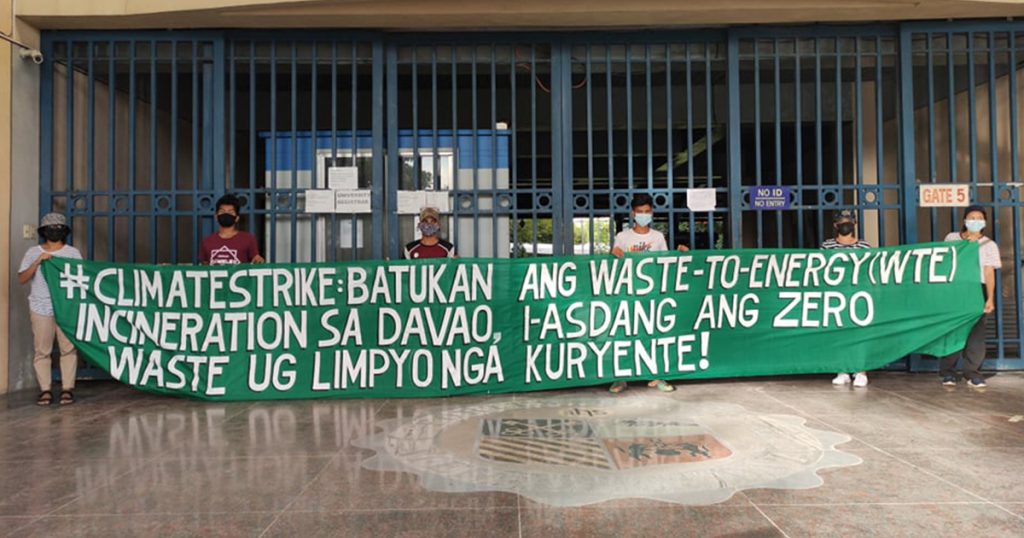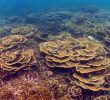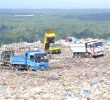
DAVAO CITY, Philippines – Environmental groups have opposed the local government’s plan to address Davao City’s worsening garbage problem through a more than P5-billion waste-to-energy (WTE) incineration project with the help of the Japanese International Cooperation Agency (JICA).
The groups expressed concern that the proposed WTE project will exacerbate the climate crisis as it will burn plastics and produce a high amount of greenhouse gases and toxic emissions.
Despite the opposition, the local government still sees WTE incineration as a long-term solution to the waste problem by burning non-biodegradable waste and converting it to energy.
It has targeted the construction of the facility within a 10-hectare agricultural property in Biao Escuela, Tugbok District.
Environmental groups argued that it was not a sustainable solution, even as they said the local government should prioritize instead zero waste systems such as single-use plastic bans, reuse and refill systems, waste reduction and segregation at the source, productive biodegradable waste management, and community support for proper implementation of ecological solid waste management.
Interface Development Intervention for Sustainability (IDIS), Ateneo de Davao’s Ecoteneo, Ecowaste Coalition, and Sustainable Davao Movement have expressed their strong opposition to the project, asserting that it would not be an environmentally sound solution to the waste management problem.
The group Plastic Free Davao said the burning of plastics would harm the public health and environment of the residents of 20 villages located within the 10-kilometer radius of the proposed site in Tugbok.
Environmentalists said the planned incinerator project would go against national laws such as the Clean Air Act, which prohibits incineration; the Ecological Solid Waste Management Act, which promotes more environmentally sound waste management solutions; and the Renewable Energy Act, which excludes non-recyclable and non-biodegradable waste in its definition of renewable energy resources.
“We urge the local government to address the waste crisis through zero waste systems such as single-use plastic ban, reuse and refill systems, waste reduction and segregation at source, productive biodegradable waste management, and community support for proper implementation of ecological solid waste management,” their joint statement read in part.
The statement from 71 civil society and environment groups in the city also called out JICA for allegedly promoting and investing in false solutions to waste management.
The groups said JICA has been “instrumental” in introducing WTE incinerators since 2010.
However, Ide Soichiro, senior representative of JICA-Philippines, said they were neither funding nor implementing the construction of the proposed WTE facility.
Davao City, with a population of 1.6 million, generates 600 to 650 tons of garbage every day, according to data from the Davao City Environment and Natural Resources (CENRO).
Getting rid of the garbage is a massive undertaking. The city government collects and disposes of garbage from 182 villages into the city’s sanitary landfill in Barangay New Carmen, Tugbok District. But since 2016, the landfill has exceeded its maximum capacity of 700,000 to 800,000 tons, accumulating 900,000 tons.
Some villages have taken the initiative to address the problem. In Barangay Mintal, village officials and non-government organizations have teamed up to collect recyclable waste such as bottles, cartons, and plastic scraps, and sell them to recycling facilities.
Randy Irog of the Mintal Resource Collectors said their members collect garbage house-to-house and teach waste segregation, generating income and helping the village push garbage collection costs down.
“(We) generate income at the same time help the barangay in minimizing the cost used in garbage collection,” Irog said.
City hall has sought the approval of the National Economic and Development Authority (NEDA) and the Department of Environment and Natural Resources (DENR) for the WTE project.
Assistant city administrator Tristan Dwight Domingo said city hall needs an additional P3.5 billion from the national government to construct the P5.23-billion WTE facility. Japan has reportedly donated P2.052 billion for the project.
Domingo said, “(C)ities across the world like in Japan and Southeast Asia were successful with their respective solid waste management programs as they are usually done with support from their national governments through subsidy and funding.”
The WTE project was first proposed in 2015 in partnership with JICA, with a feasibility study confirming the viability of establishing the facility.
In 2019, the Japanese and Philippine governments signed a grant agreement worth P2.052 billion to fund the construction and operation of a P5.23 billion WTE incinerator in the city as part of a development support collaboration program with the Private Sector for Disseminating Japanese Technology.
If it pushes through, the government will cover the remaining cost of approximately P3 billion, as requested by the Davao City Council through a resolution in August 2022. (originally posted on rappler.com)
Lucelle Bonzo is an Aries Rufo Journalism fellow.
davao city, philippines, WTE incinerator









